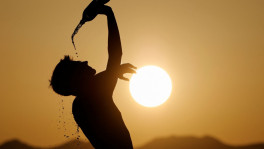India to help neighbours with emergency Covid vaccine; commercial supplies later
India will make Covid-19 vaccines available to neighbouring countries for emergency use authorisation under the grant-in-aid programme

India will send a limited quantity of Covid-19 vaccines to neighbouring countries for "emergency use authorisation" under the grant-in-aid programme while commercial supplies will only take place after the vaccines get market authorisation. The grant-in-aid restricted use to friendly neighbours will be rolled out soon after the Indian roll-out on January 16, people familiar with the matter said.
Prime Minister Narendra Modi has made it clear that the commercial supplies of Serum's Covishield and Bharat Biotech's Covaxin to foreign countries should be done under the aegis of the external affairs ministry in consultation with the pharmaceutical ministry, a senior government official said. PM Modi is in touch with the health ministry over the vaccine management and is ensuring that all government departments are in sync with each other as well as the private sector.
"As of now, globally all vaccines are being sold only to national governments under emergency use authorisation, whether it is Pfizer or Moderna. The market authorisation is expected in the second quarter of the year, by which time the Phase 3 trial of all the named vaccine contenders is completed," said a senior official.
While the Modi government will buy 1.1 crore vials of vaccine by January 14, the shipping of "symbolic" quantities of the restricted use vaccine will be done immediately after the Indian roll-out.
Bangladesh has tied up with Serum India for commercial supply of 30 million vials. Nepal is looking to procure 12 million vials from India apart from other neighbours such as Bhutan, Myanmar and Sri Lanka who have requested New Delhi for the Indian vaccines.
Officials said the decision on the amount of vaccine to be made available under the emergency use authorisation will be taken by the external affairs ministry, which had last year also coordinated supplies of Hydroxychloroquine in the early phase of the coronavirus pandemic.


 Keep updated, follow The Business Standard's Google news channel
Keep updated, follow The Business Standard's Google news channel
















